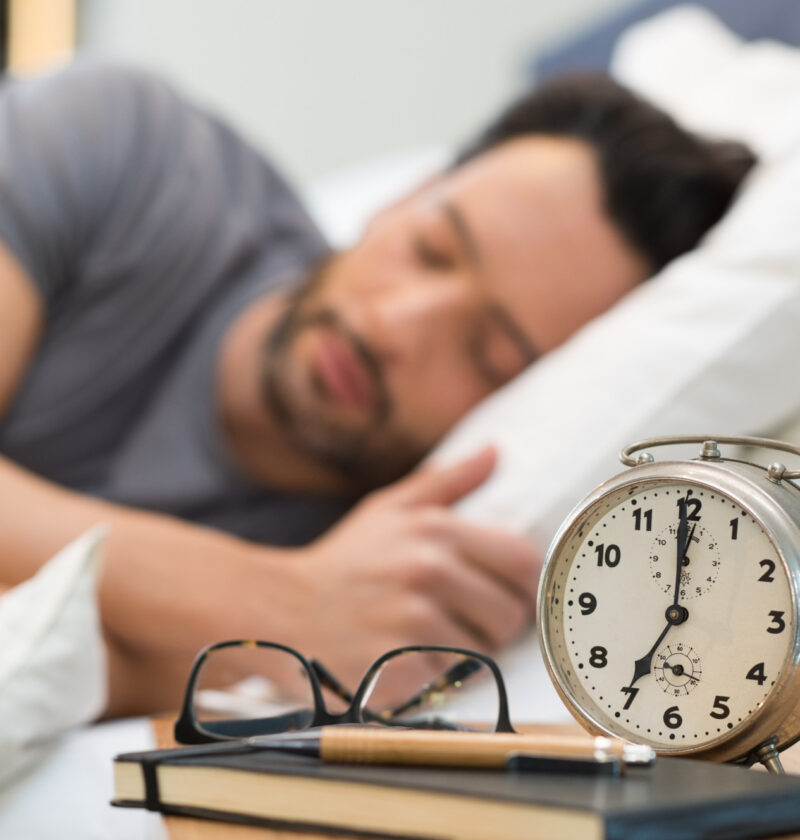Do you struggle to get a good night’s sleep? It’s a common problem, but did you know it can also impact your overall health?
Sleep is essential for physical and mental well-being, but many struggle to get the recommended 7-9 hours per night. With our busy lifestyles and constant technological access, switching off and winding down at night can be challenging. However, poor sleep can lead to various health issues, including obesity, heart disease, and diabetes.
In this article, we’ll share tips for improving sleep quality, such as creating a relaxing bedtime routine, reducing caffeine intake, and establishing a regular sleep schedule.
So, if you’re ready to improve your sleep and overall health, read on!
Stick to a Sleep Schedule
A consistent sleep schedule is fundamental for achieving a good night’s rest and improved health. Not only does it regulate your body’s internal clock, but it can also have several health benefits. These include improved sleep quality, better mood, increased energy, and decreased risk of sleep-related health problems. But did you know that your sleep patterns can also affect your testosterone level?
Low testosterone levels have been linked to poor sleep quality, fatigue, and decreased energy levels. Thus, undergoing TRT for low testosterone can help improve these symptoms and promote better sleep. However, it’s essential to consult a healthcare provider before considering TRT, as it can have potential risks and side effects. Consistency and proper care can achieve better sleep hygiene and improve your overall health and well-being.
Create a Bedtime Routine
Developing a relaxing bedtime routine can signal your body that it’s time to wind down and prepare for sleep. This can include reading a book, taking a warm bath, meditating, or listening to calming music.
Experiment with different activities to find what works best for you. It’s essential to avoid stimulating activities such as watching TV, using electronics, or engaging in intense exercise before bed. These activities can interfere with your body’s ability to relax and fall asleep.
Make Your Sleeping Environment Comfortable
Your sleeping environment can have a significant impact on your sleep quality. Factors such as temperature, noise level, lighting, and bedding can affect your ability to fall and stay asleep.
Tips for creating a comfortable sleeping environment include setting the temperature between 60-67 degrees Fahrenheit and using earplugs or a white noise machine to block out noise. Make sure your bed is comfortable and supportive, and use blackout curtains or an eye mask to block out light.
Limit Daytime Naps
While daytime napping can be tempting, excessive napping can interfere with your ability to fall and stay asleep at night. Napping during the day can disrupt your body’s natural sleep cycle, making it harder to fall asleep at night.
If you need to nap during the day, limit it to 20-30 minutes, and avoid sleeping late in the afternoon or evening. If you find yourself relying on naps to make it through the day, it may be a sign that you must prioritize getting more sleep at night.
Exercise Regularly
Regular exercise has numerous health benefits, including improving sleep quality. Exercise can help increase your time in deep sleep, which is the most vital stage of sleep.
The recommended daily exercise is 30 minutes of moderate-intensity activities, such as brisk walking, jogging, or cycling. It’s best to avoid exercising too close to bedtime, as it can increase your heart rate and make it harder to fall asleep.
Watch What You Eat and Drink
Your diet can have a significant impact on your sleep quality. Avoid eating heavy, spicy, or high-fat meals before bedtime. Also, limit your caffeine and alcohol intake, as they can disrupt your sleep patterns. Opt for a light, healthy snack before bed if you’re hungry, such as fruit or yogurt. Staying hydrated throughout the day can also promote better sleep.
Avoid drinking too much water before bed to reduce nighttime bathroom trips. Being mindful of what you eat and drink can improve your sleep quality and overall health.
Manage Stress
Stress and anxiety can be significant contributors to sleep problems. Finding healthy ways to manage stress and reduce anxiety is essential.
Techniques for reducing stress include meditation, deep breathing exercises, yoga, and progressive muscle relaxation. It’s also important to prioritize self-care activities such as spending time with loved ones, engaging in hobbies, or taking a relaxing bath.
Conclusion
A good night’s sleep is essential for optimal physical and mental health. By sticking to the above-mentioned points, you can improve your sleep quality and overall health.
Consider consulting a healthcare professional for additional support and guidance if you struggle with sleep problems.







